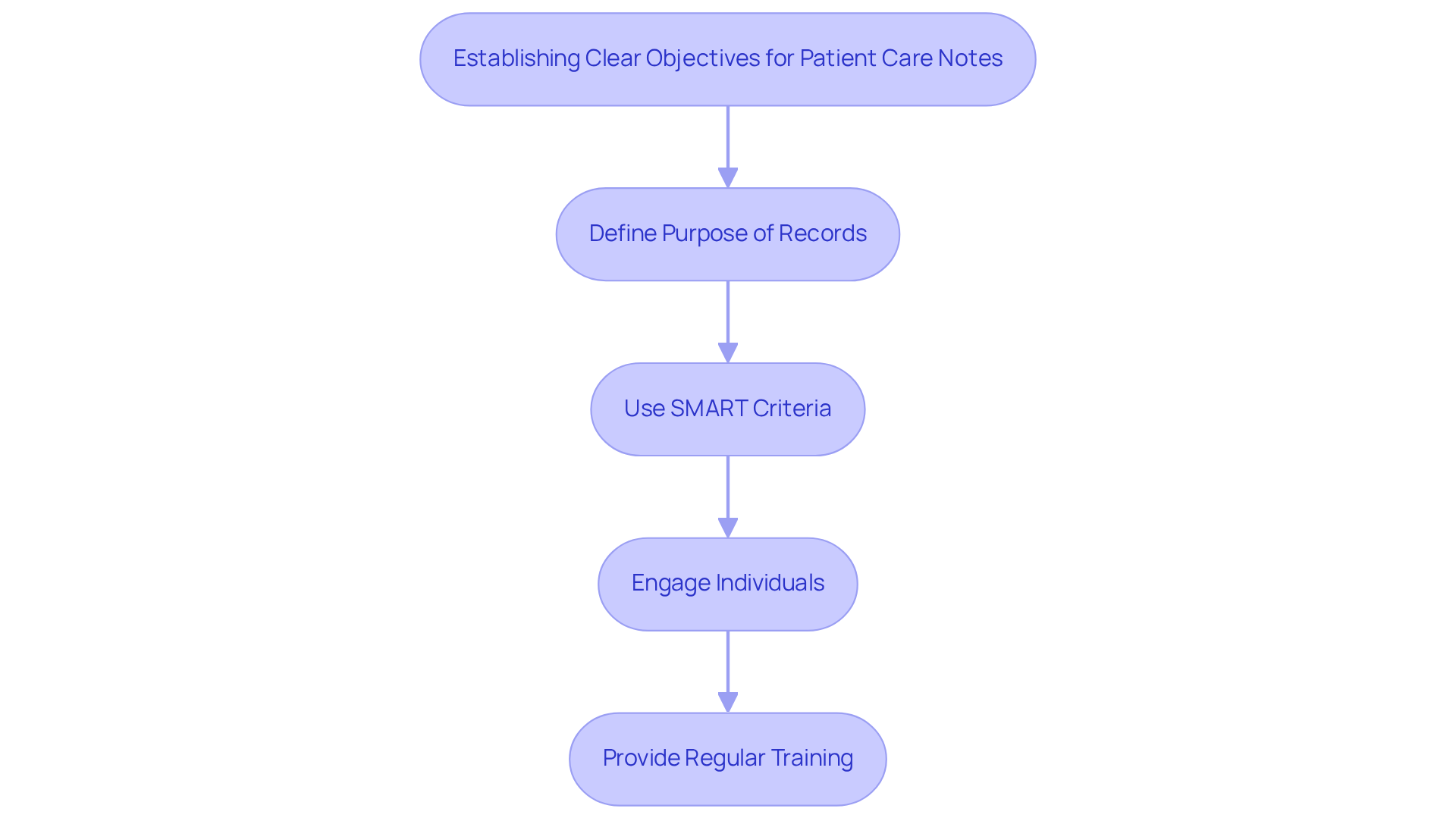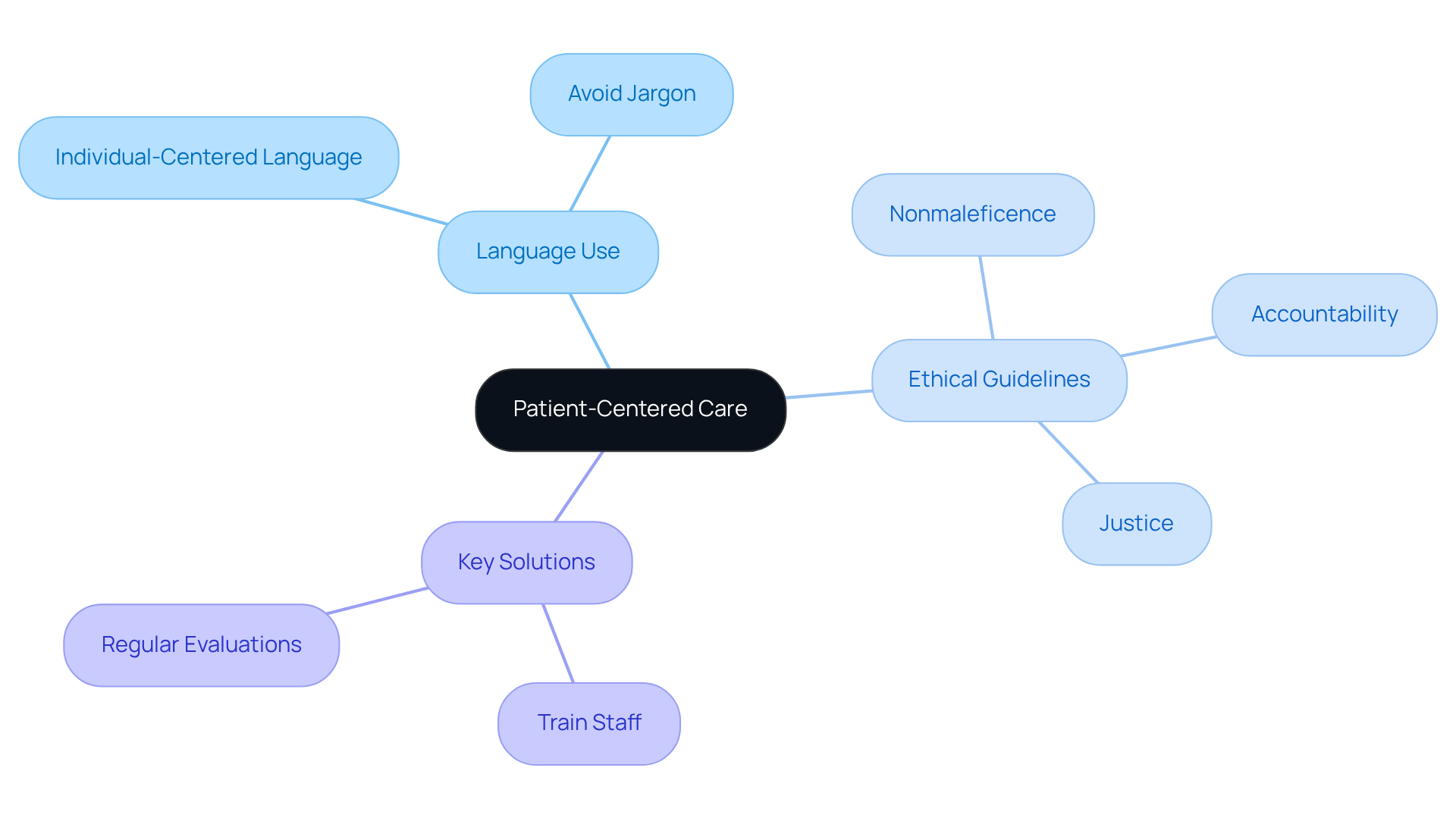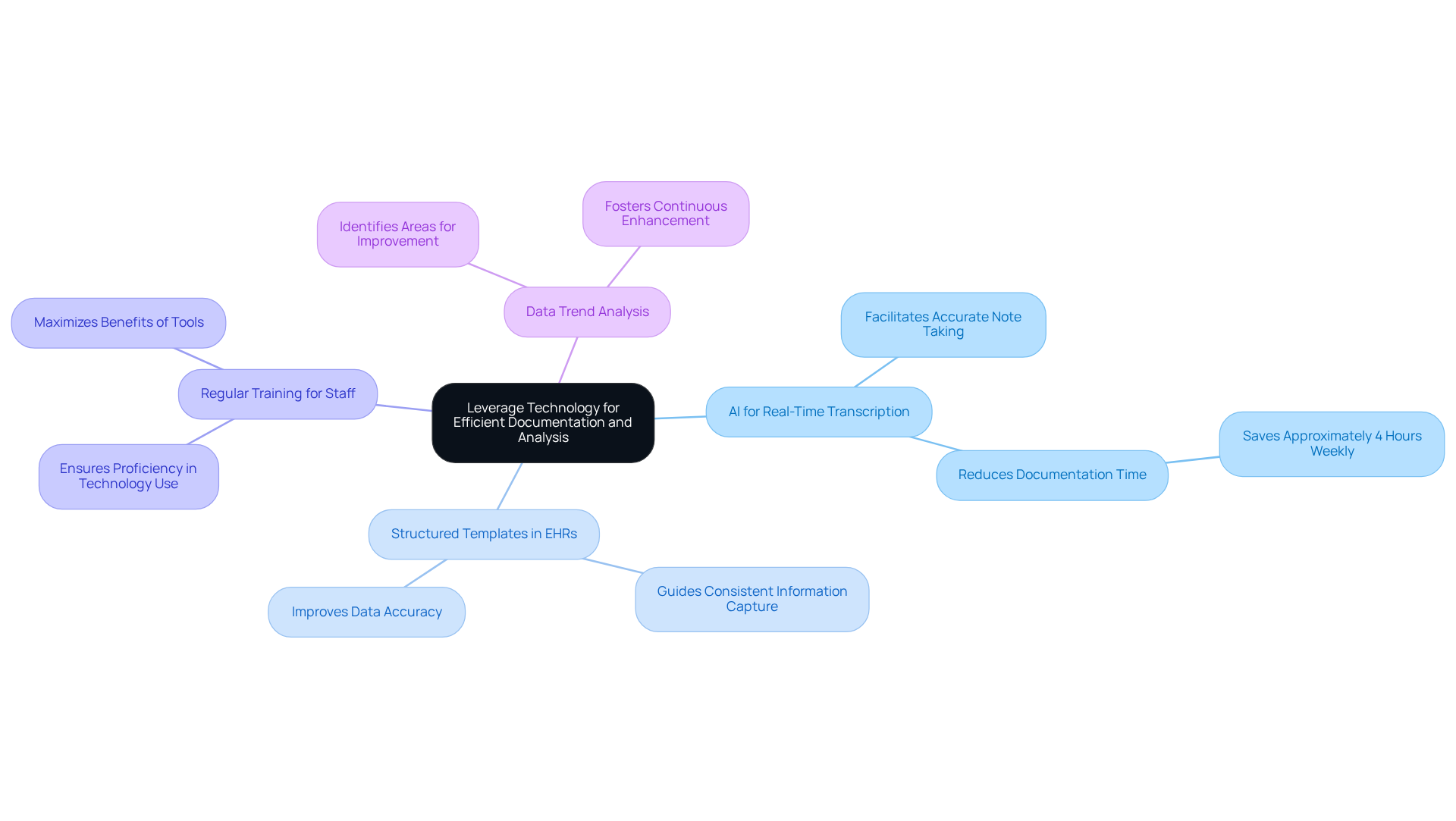Introduction
Effective patient care notes form the backbone of quality healthcare. Yet, many professionals find themselves grappling with the complexities of accurate documentation amid their demanding responsibilities.
How often do you feel overwhelmed by the administrative tasks that seem to overshadow the compassionate care you wish to provide? By honing in on best practices, healthcare providers can enhance their record-keeping, ultimately improving patient outcomes and satisfaction.
Imagine a world where thorough documentation doesn’t come at the expense of the compassionate care your patients deserve. This article explores essential strategies for crafting effective patient care notes. From setting clear objectives to leveraging technology, we’ll ensure that you’re equipped to meet the challenges of modern healthcare documentation.
Key Strategies for Effective Patient Care Notes:
- Set clear objectives for each note.
- Utilize technology to streamline documentation.
- Regularly review and refine your practices.
Let’s embark on this journey together, transforming the way we approach patient care documentation.
Establish Clear Objectives for Patient Care Notes
Establishing clear objectives for patient care notes can feel overwhelming for healthcare professionals. The emotional burden of ensuring accurate records while providing compassionate care is significant. How can we ease this challenge?
First, it’s essential to define the purpose of the records. Focus on capturing vital information like medical history, treatment plans, and follow-up actions. Using the SMART criteria—Specific, Measurable, Achievable, Relevant, and Time-bound—can greatly enhance how these objectives are formulated. For example, a provider might aim to record all interactions with individuals within 24 hours. This ensures prompt updates to treatment plans and fosters consistency in patient care notes.
Engaging individuals in the goal-setting process not only makes the notes more relevant but also aligns them with their needs and preferences. Frequent training sessions on record standards can further emphasize the importance of clear objectives in patient care notes among healthcare personnel. This promotes a culture of responsibility and accuracy in record-keeping.
As Cicero wisely noted, "In nothing do men more nearly approach the gods than in giving health to men." This highlights the vital role healthcare professionals play in supporting individuals. Additionally, the Michigan Public Health Institute reminds us that "The individual is the most crucial member of the support team." This underscores the importance of incorporating individual viewpoints into record-keeping practices.
However, it’s crucial to be mindful of potential pitfalls when applying the SMART criteria. Setting objectives that are too vague or unrealistic can hinder effective documentation. By addressing these aspects, healthcare providers can significantly enhance the quality and effectiveness of their patient care notes.
Key Solutions:
- Define the purpose of records clearly.
- Use SMART criteria for objective setting.
- Engage individuals in the process.
- Provide regular training on record standards.
By taking these steps, we can create a more supportive environment for both healthcare providers and the individuals they serve.

Utilize Patient-Centered Language and Ethical Guidelines
Integrating individual-centered language into patient care notes is crucial for honoring each person's identity and experiences. Have you ever thought about how the words we choose can impact someone’s sense of self? Providers should steer clear of jargon and instead opt for terms that individuals can easily understand and relate to. For example, rather than labeling someone as 'a case of diabetes,' a healthcare professional might say 'the person living with diabetes.' This simple change not only personalizes the patient care notes but also fosters a deeper connection between providers and individuals.
Following ethical standards in record-keeping is essential for maintaining confidentiality and ensuring that notes reflect the values and preferences of those receiving care. Key ethical principles—like nonmaleficence, accountability, and justice—should guide these practices, promoting fairness and effectiveness in healthcare delivery. Training staff on these principles can cultivate a culture of respect and understanding within healthcare settings. Regular evaluations of records for adherence to ethical standards can enhance accountability and support ongoing improvements in the quality of care for individuals.
Experts emphasize that effective patient care notes should capture not just clinical details but also the individual's perspective and goals. Focus groups have identified ten distinct principles for patient-centered records that healthcare professionals can follow to enhance their patient care notes. By embracing these moral principles and being mindful of potential pitfalls in language use, healthcare professionals can significantly elevate the quality of records. This ultimately leads to better outcomes and greater satisfaction for individuals.
Key Solutions:
- Use individual-centered language.
- Train staff on ethical principles.
- Regularly evaluate records for adherence to standards.
By taking these steps, we can create a more compassionate healthcare environment that truly values each person's journey.

Leverage Technology for Efficient Documentation and Analysis
Healthcare providers often face overwhelming administrative burdens that can detract from the quality of patient care. Have you ever felt that the time spent on documentation takes away from meaningful interactions with your patients? It’s a common struggle, but there are ways to alleviate this pressure.
By embracing advanced technologies like Electronic Health Records (EHRs), voice recognition software, and AI-driven recording tools, you can significantly enhance the efficiency of care notes. For example, AI can facilitate real-time transcription of client interactions, ensuring that your notes are both precise and thorough. Research indicates that these technologies can reduce clinician workload by streamlining the process of recording patient care notes, saving about four hours each week. Imagine what you could do with that extra time—more significant interactions with those you care for.
Implementing structured templates within EHRs is an effective strategy for improving patient care notes. These templates guide you in consistently capturing essential information in patient care notes, simplifying records and improving the accuracy of health data. Regular training on these technologies is crucial, ensuring that all staff members are proficient and can maximize the benefits of these tools.
Additionally, examining record trends through data analysis can yield valuable insights into areas for improvement, fostering a culture of ongoing enhancement in writing practices. By embracing these technological advancements, you can significantly reduce the time spent on documentation, ultimately enhancing the quality of patient care.
Key Solutions:
- Utilize AI for real-time transcription.
- Implement structured templates in EHRs.
- Provide regular training for staff.
- Analyze data trends for continuous improvement.
By taking these steps, you not only lighten your workload but also enrich the care you provide. Let’s work together to create a more efficient and compassionate healthcare environment.

Conclusion
Establishing effective patient care notes is essential for enhancing the quality of healthcare delivery. Have you ever considered how clear objectives and patient-centered language can transform your documentation? By focusing on these elements and leveraging technology, healthcare providers can create notes that not only meet regulatory standards but also foster meaningful connections with individuals. This approach ensures that records reflect the unique needs and experiences of each patient, ultimately leading to improved care outcomes.
The article highlights three key best practices:
- Define clear objectives using the SMART criteria.
- Integrate individual-centered language while adhering to ethical guidelines.
- Employ advanced technologies to streamline documentation processes.
These strategies enhance the accuracy and relevance of patient care notes while promoting a culture of compassion and understanding within healthcare settings. Regular training and evaluations are crucial to maintaining high standards in record-keeping. How often do we reflect on the significance of these practices? Effective patient care notes are more than just administrative tasks; they are vital tools that support the overall healthcare mission.
By committing to these best practices, healthcare professionals can ensure that their documentation serves its intended purpose and enriches the patient experience. Embracing these changes can lead to a more efficient, compassionate, and patient-centered healthcare environment. Together, we can improve the quality of care for all individuals. Are you ready to take the next step in enhancing your patient care documentation?




